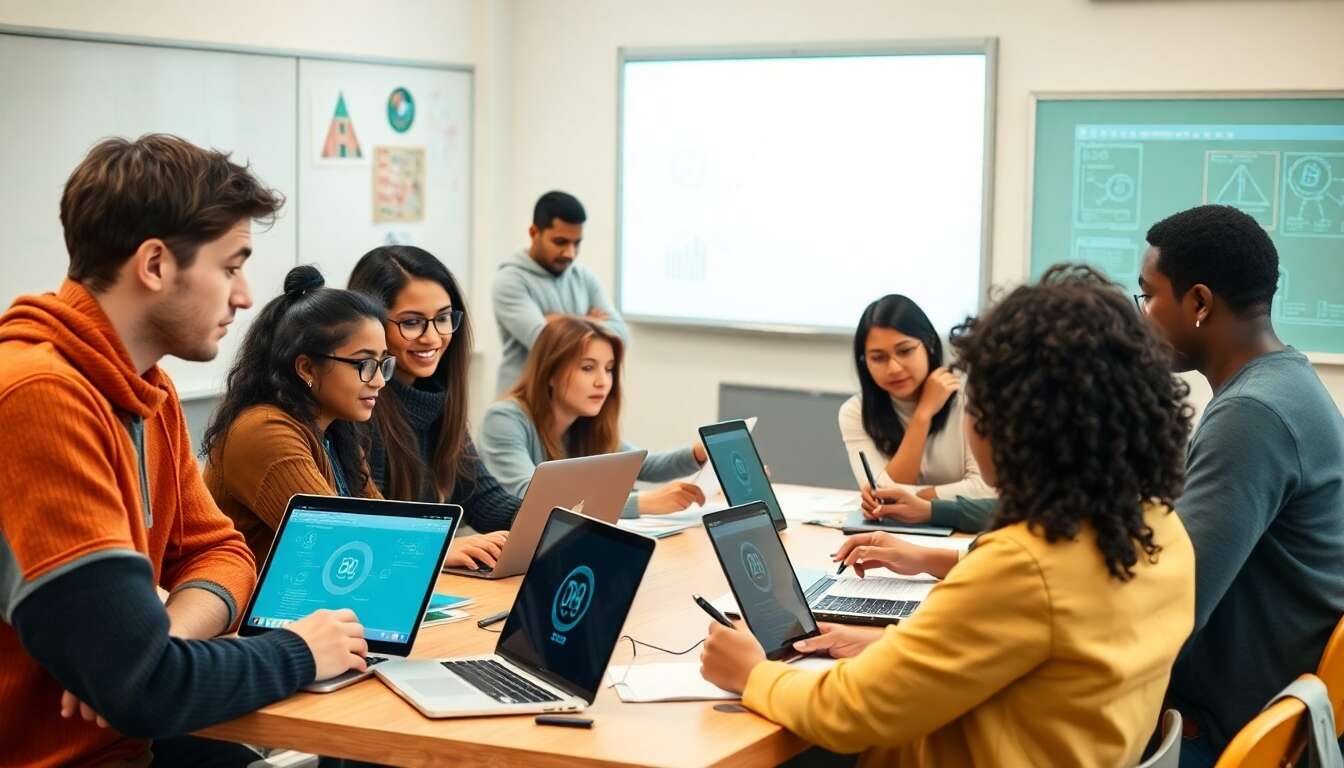In the current landscape, education faces numerous challenges, further complicated by a persistent digital divide worldwide. Within this context, blockchain technology emerges as a promising solution to enhance educational accessibility, offering security, traceability, and decentralization. But how exactly does this technology impact education, and what future does it hold for learners around the globe ?
Understanding Decentralized Technology in Education
Defining Decentralized Technology
Decentralized technology refers to systems where operations aren’t governed by a single central authority. Instead, they operate on a network of nodes, ensuring that data handling is more equitable and distributed. This approach is particularly beneficial in education, where equitable access to resources and information can transform learning experiences.
The Role of Blockchain
Blockchain, as a form of decentralized technology, acts as a digital ledger distributed across multiple locations. This ensures not only secure data storage but also immutability. In education, this means student records, course materials, and intellectual property can be managed in a reliable, transparent manner.
Current Applications in Education
From MOOCs (Massive Open Online Courses) that utilize decentralized networks to share resources, to academic institutions adopting blockchain for credential verification, decentralized technology is reshaping educational landscapes. Schools leverage these tools to expand their reach beyond geographical limits, ensuring all learners can access quality education.
With a firm understanding of decentralized technology, the stage is set to explore how blockchain specifically impacts educational accessibility.
The Impact of Blockchain on Educational Accessibility

Enhancing Data Security and Trust
Blockchain stands out for its robust security features. In an era where data breaches are common, blockchain ensures that educational records are tamper-proof. This not only protects student information but also builds trust with educational providers.
Democratizing Access to Learning Resources
By deploying blockchain’s decentralized nature, educational resources become more accessible. This technology allows institutions to provide materials directly, bypassing traditional barriers like cost and location. Students in remote areas can access the same resources as those in urban centers.
Facilitating Credential Verification
Blockchain offers a transparent and efficient system for verifying credentials. Students can have their qualifications stored on the blockchain, which can then be easily accessed and verified by employers worldwide. This speeds up recruitment processes and ensures authenticity.
Understanding these impacts, we are poised to delve into how blockchain secures and verifies academic credentials for future generations.
Security and Verification: The Future of Diplomas

Immutable Records for Enhanced Credibility
Blockchain’s ability to create unchangeable records provides unparalleled credibility to academic credentials. Institutions storing diplomas on blockchain ensure they are immune to forgery or loss, which enhances the value of these documents.
Global Recognition of Standards
As educational institutions around the world begin to adopt blockchain, the credentials they issue gain global recognition. This shift promises a future where students can pursue opportunities internationally without the cumbersome process of credential evaluation.
Building Student-Particular Portfolios
Beyond degrees, blockchain can store entire educational histories, including certificates, courses taken, and skills acquired. This comprehensive portfolio allows students to showcase their holistic educational journey to prospective employers.
As we explore the tangible benefits of blockchain-verified credentials, it’s essential to examine how decentralized autonomous organizations are opening new pathways in education.
DAO and Education: Decentralized Opportunities

What are Decentralized Autonomous Organizations ?
DAO, or Decentralized Autonomous Organizations, operate without central governance. Their protocols and rules are executed through smart contracts on the blockchain, allowing for transparent and efficient management.
Implications for Educational Management
Educational institutions utilizing DAOs can streamline administrative processes, ensuring decisions are democratic and inclusive. This decentralization of power fosters an environment where stakeholders collaboratively shape the educational experience.
DAOs in Collaborative Learning
DAOs can facilitate peer-to-peer learning environments where students co-create content and curricula. This empowers learners, offering them a sense of ownership of their educational paths.
With DAOs altering the management and collaborative aspects of education, we turn our gaze to potential models for decentralized learning.
Towards a Decentralized Learning Model
Frameworks for a Decentralized Future
To transition towards a decentralized learning model, frameworks integrating blockchain, AI, and immersive technologies like VR must be developed. These frameworks will allow personalized learning experiences tailored to individual student needs.
Benefits for Inclusivity and Personalization
Decentralized learning frameworks can cater to diverse learning styles and needs. By decentralizing the curriculum, educators can provide a personalized education that is inclusive, allowing for differentiated instruction that meets each student’s pace and learning style.
The Role of Educators in a Decentralized Model
Even in decentralized systems, educators play a crucial role as facilitators and guides. They help students navigate learning pathways, providing support while technology handles administrative and content delivery tasks.
As we reflect on the future of decentralized learning models, it is evident that the convergence of technology with educational philosophies holds transformative potential.
The exploration of blockchain in education reveals numerous opportunities to address long-standing challenges in the sector. From increased security and access to innovative credential processes, to the democratization of learning through DAOs, decentralized technology offers a transformative promise. As educational models continue to evolve, embracing decentralization will drive equitable learning opportunities on a global scale.



